Having discomfort in your breathing can diminish your experience of life. To fully focus on daily activities and wake up replenished every morning, it is crucial to be able to breathe comfortably. However, a deviated septum can hinder this simple act, leading to nasal congestion and discomfort. In this blog, we will delve into the various benefits of surgical procedures designed to address different cases of deviated septum, with a particular focus on deviated septum balloon septoplasty.
The Promise of Deviated Septum Surgery
One of the primary benefits of deviated septum surgery is restoring proper nasal function. By correcting the misalignment of the nasal septum, airflow is optimized, allowing for easier breathing and reduced congestion.
Beyond the improvement in nasal function, the positive outcomes of deviated septum surgery extend to various aspects of daily life. Many individuals report a significant reduction in symptoms of a deviated septum, such as recurrent sinus infections, post-nasal drip, and headaches following the procedure. Sleep quality also improves as breathing becomes less labored during the night. The ability to enjoy a restful night’s sleep can profoundly impact overall energy levels and daytime productivity.
Exploring the Potential Deviated Septum Surgery Risks
While deviated septum surgery promises to improve nasal function and enhance the quality of life, it is essential to delve into the potential risks and complications associated with the procedure. Understanding these risks is crucial for individuals considering deviated septum surgery to make an informed decision about their nasal health.
One of the primary risks of deviated septum surgery is bleeding. As with any surgical procedure, bleeding can occur during or after the surgery. However, it’s important to note that bleeding during the procedure is typically well-controlled by the surgical team, and postoperative bleeding is relatively uncommon. Surgeons take necessary precautions to minimize the risk of bleeding, but it is a potential complication that should be understood by individuals considering the surgery.
Adverse reactions to anesthesia are a potential concern during any surgical procedure, including deviated septum surgery. Qualified anesthesiologists administer anesthesia and closely monitor patients throughout the procedure to minimize the risk of adverse reactions.
During the consultation process with a qualified surgeon, discussing these potential risks and complications in detail is crucial. An experienced surgeon will comprehensively overview the common risks associated with deviated septum surgery and address any specific concerns or questions.
Unforeseen Challenges: Creative Risks
One of the unforeseen symptoms of deviated septum surgery is the temporary alteration of voice tone or nasal resonance. Due to the manipulation and adjustment of the nasal structures during the surgery, some individuals may experience changes in their voice quality or nasal resonance. This can lead to a temporary difference in how their voice sounds or how they perceive sound. It’s important to note that these changes are typically temporary and subside as the healing process progresses.
Another temporary effect of septoplasty may be facial swelling or bruising. There is no need to let these temporary cosmetic changes impact your self-esteem and confidence during the initial stages of recovery.
Managing the Risks
Selecting a skilled and experienced surgeon minimizes the risks associated with deviated septum surgery. Experienced surgeons have a deep understanding of nasal anatomy and surgical techniques, which enables them to navigate potential challenges effectively.
Pre-operative preparation plays a vital role in reducing complications during deviated septum surgery. Before the procedure, the surgeon will conduct a comprehensive evaluation to assess the individual’s overall health and suitability for surgery. This evaluation may include a review of medical history, physical examination, and diagnostic tests. By identifying any underlying medical conditions or factors that may increase the risk of complications, the surgeon can take necessary precautions to mitigate these risks. Individuals must provide accurate and detailed information during this evaluation to ensure safety.
Postoperative care instructions are equally crucial in managing the risks associated with deviated septum surgery. Following the surgery, the surgeon will provide detailed guidelines on wound care, pain management, and activity restrictions. Adhering to these instructions promotes optimal healing and reduces the risk of complications, such as infection or excessive bleeding.
Balancing Risks and Rewards
While there are some risks to septoplasty, here are its benefits:
- Enhanced Nasal Breathing: One of the primary benefits of septoplasty is the restoration of optimal nasal airflow. A deviated septum can obstruct the nasal passages, leading to difficulty breathing through the nose. Septoplasty involves straightening the septum, allowing for improved airflow and easier breathing. Individuals who undergo septoplasty often experience a remarkable difference in their ability to take deep breaths and feel a sense of relief from chronic nasal congestion. Enhanced nasal breathing not only improves overall comfort but also helps in better oxygenation of the body, leading to increased energy levels and improved sleep quality.
- Reduced Nasal Symptoms: A deviated septum can contribute to various nasal symptoms, including nasal congestion, post-nasal drip, and recurrent sinus infections. By correcting the structural abnormalities of the septum, septoplasty can alleviate these symptoms. Improved nasal airflow helps reduce congestion, allowing for proper mucus drainage and reducing the likelihood of sinus infections. Individuals often notice a decrease in the frequency and severity of nasal symptoms, significantly improving their daily nasal comfort.
- Improved Sleep Quality: Nasal obstruction from a deviated septum can negatively impact sleep quality. It can lead to snoring, mouth breathing, and sleep interruptions due to difficulty breathing. Septoplasty can address these issues by optimizing nasal airflow. With a straightened septum, individuals can experience better breathing during sleep, reduced snoring, improved oxygen intake, and uninterrupted sleep. Restful nights of sleep can profoundly impact overall energy levels, mood, and daytime performance.
- Enhanced Physical Performance: A deviated septum can hinder optimal breathing and impact performance for individuals engaged in physical activities or sports. Septoplasty can improve nasal airflow, enabling athletes and active individuals to achieve better respiratory function during exercise. Increased oxygen intake increases stamina and endurance, enhancing physical performance. Septoplasty allows athletes and active individuals to perform at their best by eliminating the limitations imposed by nasal obstruction.
- Psychological Well-being: The impact of a deviated septum extends beyond physical discomfort and can affect psychological well-being. Chronic nasal congestion, difficulty breathing, and associated symptoms can cause frustration, irritability, and a sense of self-consciousness. Correcting a deviated septum through septoplasty can alleviate these issues, improving emotional well-being. Individuals often experience a boost in confidence, feeling more at ease in social interactions and less self-conscious about their nasal function. Relieving physical discomfort can improve quality of life and mental well-being.
To Conclude
Getting in touch with an experienced surgeon will help you address any doubts and risks involved with septoplasty, which is the best treatment for a deviated septum. Through septoplasty, individuals can experience enhanced nasal breathing, reduced nasal symptoms, improved sleep quality, better physical performance, and overall psychological well-being.
At Texas Sinus & Snoring, our industry-leading experienced surgeons help guide you through a safe septoplasty – book a consultation today.




